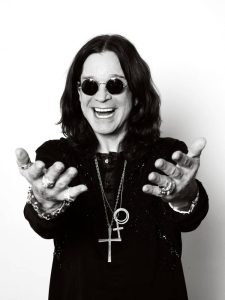On 22 July 2025, Ozzy Osbourne sadly passed away at the age of 76. His death certificate confirmed that he suffered a heart attack which led to a cardiac arrest. The incident took place outside of hospital, leaving very little time for emergency response.
Ozzy was known worldwide not just for his music, but for his honesty, humour and resilience. Even though he had spoken openly about his health struggles in recent years, his sudden passing came as a shock to many. While nothing can take away the sadness of this loss, it brings attention to a vital health message. Heart attacks and cardiac arrests are not the same, and understanding the difference could help save lives.

Heart attack vs cardiac arrest
A heart attack, or myocardial infarction, occurs when one of the arteries supplying blood to the heart becomes blocked. This blockage cuts off oxygen to part of the heart muscle, causing damage. A person having a heart attack is usually conscious and may experience symptoms such as chest pain, shortness of breath or discomfort in other areas of the body.
A cardiac arrest is different. It is when the heart suddenly stops beating properly and is unable to pump blood around the body. The person quickly becomes unresponsive and stops breathing normally. Without immediate help, cardiac arrest is fatal within minutes.
A heart attack can sometimes cause a cardiac arrest, especially if the blockage is severe. This is believed to be what happened to Ozzy.
When defibrillators may not be enough
Defibrillators are designed to deliver a shock to the heart to restore its rhythm during certain types of cardiac arrest. These devices are life-saving and should be used as quickly as possible when someone collapses and is unresponsive.
However, not every cardiac arrest is shockable. In Ozzy’s case, the cardiac arrest was caused by a severe artery blockage. When the heart completely stops due to this kind of event, a defibrillator may not work. This is why early recognition of heart attack symptoms and calling 999 is just as important as knowing how to use an AED.
Despite this, AEDs save lives and remain a crucial part of the chain of survival. They should be available in workplaces, schools, gyms and public areas, and registered with The Circuit to help emergency services locate them.
Ozzy’s health conditions played a role
Ozzy Osbourne had spoken about living with Parkinson’s disease, including a form that caused autonomic dysfunction. This condition affects the body’s ability to manage basic functions like blood pressure and heart rate.
He also lived with coronary artery disease. This condition narrows the arteries that supply blood to the heart, making a heart attack more likely. When combined, these health issues significantly increased his risk of a sudden cardiac emergency.
Despite having medical support, the combination of these conditions can make it much harder to survive a cardiac event, especially when it happens outside of hospital.
Time is everything in a cardiac arrest
Around 30,000 people experience an out-of-hospital cardiac arrest each year in the UK. Fewer than one in ten survive. Every minute without CPR or defibrillation reduces the chance of survival by approximately ten percent.
This is why public access defibrillators and bystander CPR training are so important. Those nearby are often the first to act, and their response can be the reason someone survives.
If you are unsure where to start, you can learn how to perform CPR and find out more about AEDs through our website.
A life and legacy that will not be forgotten
Ozzy Osbourne was a household name. His energy on stage, his connection with fans, and his bravery in speaking about his health made him stand out. He brought people together through music, and his honesty about life’s challenges touched many hearts.
His death reminds us how sudden and unforgiving cardiac emergencies can be. It shows how critical it is to understand the early signs of a heart attack and to act quickly if someone collapses and stops breathing. No one wants to imagine being in that situation, but knowing what to do can make all the difference.
Our thoughts are with Ozzy’s family, his friends and everyone who loved his music. While nothing can undo the pain of his loss, we can honour his legacy by helping others stay informed, prepared and ready to act in an emergency.


